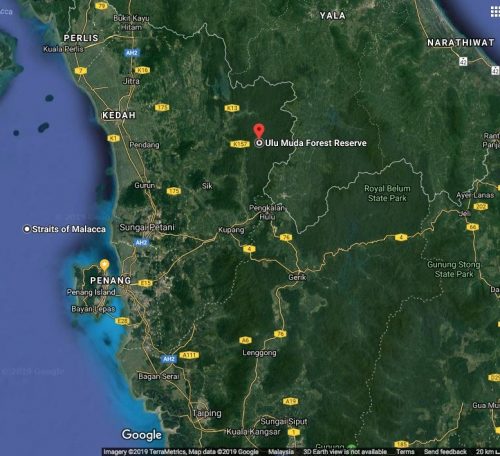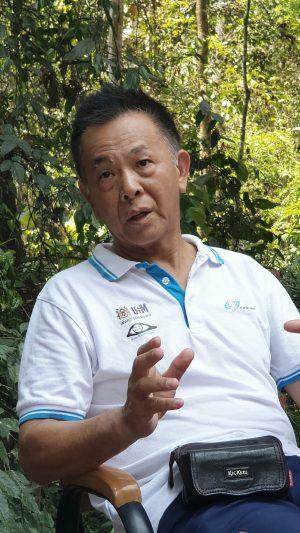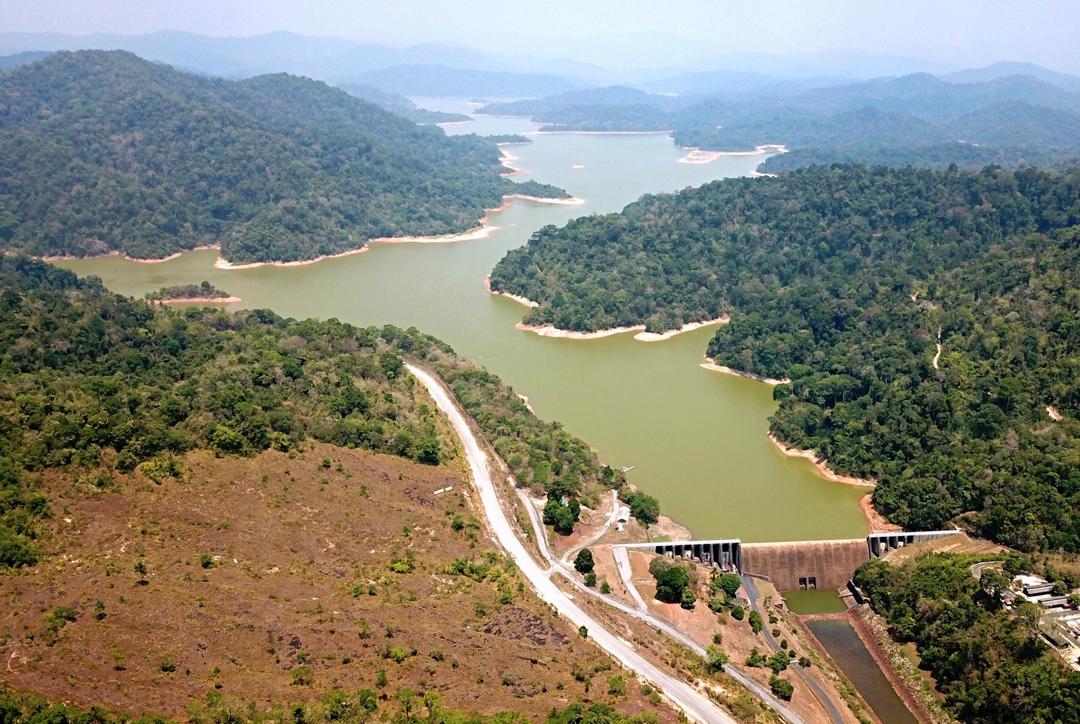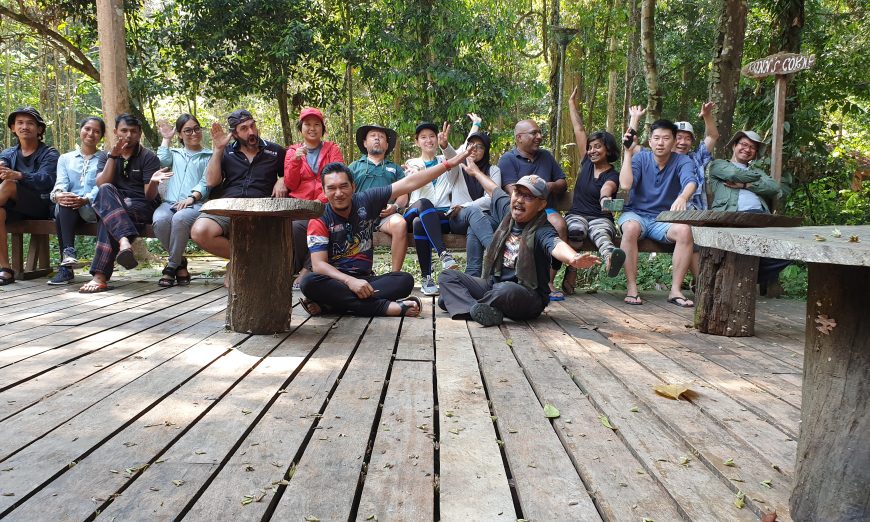THE current heatwave hitting several states in Malaysia is surely of great concern as people endure soaring temperature and stifling humidity.
Most worrying is that a water crisis is looming even though it rained heavily twice recently after a prolonged period of drought. Indeed, in the northern states, Kedah had already started to cut water supply to 20,000 households while Penang and Perlis are anxious over declining water levels in their dams at the time of writing.
Whether the dry spell will grow in intensity in the future, no one can really tell. But it certainly brings to fore again the importance of protecting Ulu Muda Forest Reserve, especially against logging and poaching activities.

Spanning 105,000 hectares, the Ulu Muda Forest Reserve is located in the northeastern part of Kedah. It is the biggest forest reserve in the Greater Ulu Muda Forests which consists of six other forest reserves. Ulu Muda Forest Reserve makes up 65 per cent of the Greater Ulu Muda Forests that have a total of 160,000 hectares.
Water Watch Penang (WWP) president Prof Chan Ngai Weng, who majored in geography, water resources and climatology from University Malaya and water resources and hazard management from Middlesex University in London, said logging had been going on for years in the forest and became rampant in 2000s.
He said it stopped after Friends of Ulu Muda, a loose coalition of NGOs, made noise about it and also after the Penang government had brought up the matter to the Cabinet.
But the problem resurfaced a few years later as Kedah, without getting any compensation from the Federal Government for the conservation of the forest, allowed logging to be carried out. Again, Friends of Ulu Muda came back to the picture.
As a result, Kedah announced it was revoking and halting the issuance of logging permits last year.
“Ulu Muda is very important not only to Kedah but also to Penang and Perlis. It provides 100 percent of raw water to Kedah, 80% to Penang and 70% to Perlis,” said Prof Chan, who is currently lecturing at the Universiti Sains Malaysia.
Penang draws its raw water from Sungai Muda which flows down from Kedah.
He was briefing a group of journalists during a recent three-day, two-night Media Advocacy Trip to Ulu Muda Forest Reserve at Earth Lodge located in the centre of the forest reserve.
The trip, organised by WWP and Management & Ecology of Malaysian Elephants (MEME), was sponsored by Yayasan Hasanah.

Prof Chan said the main rice growing areas in Kedah relied on water from the Muda, Pedu and Ahning dams located in the Ulu Muda Forest Reserve. They provide about 40% of the total rice production in Malaysia, serving as a great source for the country’s food security.
“Without water, our factories cannot function. The tourism industry, hotels and schools, for instance, will suffer. We need water for everything. We should be looking at the picture holistically.
“Trees are doing us a big favour. They help control global warming, convert carbon dioxide to oxygen through photosynthesis. If they are chopped down, all the carbon that is stored in the tissues will evaporate into the air. More carbon dioxide in the air will be very bad for us.
“If the forest is destroyed, devastating floods may happen. Trees help retain rainwater, can slow and reduce runoff. Imagine the losses if there is a huge flood, not to mention the loss of lives. But when the season is dry, the trees release the water through gravity.”
Prof Chan said Ulu Muda Forest Reserve must also be protected because of its ecosystem services and rich biodiversity.
“There are for example wild elephants here (forest reserve). We want our children to see the elephants in the future. Imagine today we still have dinosaurs. How nice. But they are now extinct. So, we don’t want elephants to be extinct and can only find them in museums.”
Like WWF-Malaysia and some other NGOs, Prof Chan said Water Watch Penang called on the Kedah government to gazette Ulu Muda Forest Reserve as a state park.
He said this was also the view shared by the majority of 85 participants who took part in two workshops conducted by Water Watch Penang this year, with the first at Bayview Hotel in George Town on Jan 17 and the second at the TH Hotel & Convention Centre in Alor Setar on Feb 15.
“A forest reserve can be easily degazetted by state exco members whereas it may be 10 times harder to degazette a state park as it will require a public forum.
“When you want to degazette a national park or a state park, it’s abolishing a law. To degazette a state park, it still has to go through the state exco. When people come to know about it, especially the NGOs, they will make a big hue and cry. I don’t think the government want bad publicity.”
Prof Chan said WWP supports water tariff increment in Penang as the state has the cheapest water tariff in Malaysia and yet has the highest usage in the whole country per capita per day.

“Because it’s so cheap, people take it for granted. We waste a lot of water. Penang uses about 291 litres per person whereas the national average is only about 220 and Singapore only 150. The price of water in Singapore is very high and the people are very sensitized.
“Each household usage should be less than 20 cubic metres per month, So, we are proposing that the water tariff stays for those using below 20 cubic metres, but double the price for usage of 21 to 30 cubic metres and double the price again for usage of 31 to 40 cubic metres.”
The authorities are now planning to use cloud seeding if the water in the dams reaches a critical level and have also urged everyone to use water wisely.
Just imagine the consequences if the Ulu Muda rainforest is destroyed or gone. Many of us will then begin to realise its importance and value water but by then, it may be too late.

